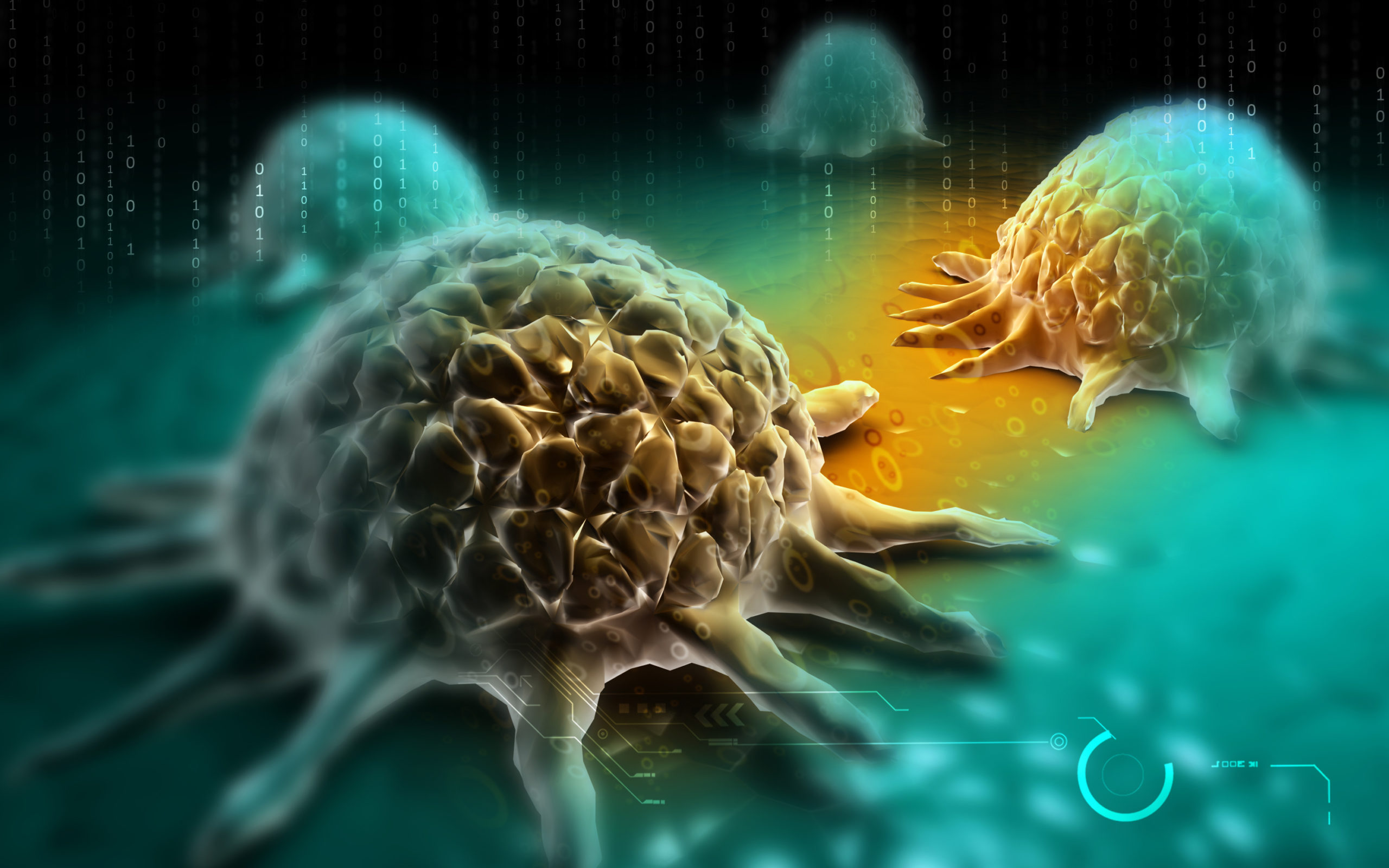Elevated stress hormone levels could reawaken dormant cancer cells, study finds


We all know somebody who has been given the all-clear, and then sadly their cancer returns. Knowing that others have survived this experience twice gives us hope, but it doesn’t diminish the suffering.
If cancer returns after a person has been free of symptoms for at least a year, experts consider it a recurrence. Cancer may recur several times and, in some cases, may never go away completely. (1)
Cancer recurrence after effective treatment is common and scientists have been working to figure out how undetectable cells will wreak havoc on the body again.
During survivorship, a second cancer may develop at any time. According to some research, cancers typically grow five to nine years after treatment is completed. (1,6)
Dormancy Or Formation
Dormancy is a period of tumor formation in which cells stop dividing but remain dormant while waiting for the right environmental conditions to restart proliferation. (3)
Early tumor growths, after what was believed to be an effective therapy of the primary tumor are thought to contain dormant cancer cells. (3)
It is understood that there is a crosstalk between the cell’s form and the unfavorable microenvironment that causes it. The association of tumor cells with the microenvironment decides whether the cells proliferate and develop metastases (cancer that spreads to another part of the body), or undergo growth arrest and enter cancer dormancy until tumor cells disseminate and begin to migrate to a new location to metastasize. (3)
It is hypothesized that disseminated cells prefer dormancy when the new environment is unfavorable, such as when there is cellular tension or a scarcity of growth factors. These dormant cells will remain in this state for a long time and be undetectable clinically. (3)
These cells, on the other hand, can be risky because they can return years after the doctor and patient believe the patient has been healed. They can remain in a dormant state for several years, but the dormancy cycle can be broken, causing them to proliferate uncontrollably and form untreatable metastases. (3)
The type of cancer determines if, when, and where it recurs. Some cancers have a predictable recurrence pattern. The following are some of the ways that cancer may recur:
- In the same part of the body as the primary cancer, called a local recurrence
- Near where the primary cancer was located, called a regional recurrence
- In another part of the body, called a distant recurrence
Even if the primary cancer recurs in a different part of the body, recurrent cancer is named for the place where it first appeared. If breast cancer recurs distantly in the liver, for example, it is still referred to as breast cancer rather than liver cancer. (5)
Shock Factor
It’s natural to be frightened, shocked or stressed when you hear “You have cancer” for the second time.
The exact causes of second cancers are not yet known, it is difficult to predict when they might appear. (6)
This ensures that cancer survivors must be much more mindful of the risk factors for second cancers and ensure strong follow-up health care, including:
- Avoiding tobacco products.
- Developing an exercise plan.
- Maintaining a healthy body weight.
- Eating five to seven servings of fruits and vegetables a day.
- Performing regular breast, testicular, and skin self-exams each month.
- Using sunscreen and avoiding exposure to the sun, particularly on irradiated skin.
- Getting enough sleep. (6)
Stress Hormones And Cancer
On top of the above, it’s important to also know that elevated stress hormone levels may reawaken dormant cancer cells. Past studies have linked chronic stress with cancer progression. (4)
According to a recent study of mice, stress hormones and immune cells known as neutrophils may play a role in tumor recurrence years after treatment, by reawakening dormant cancer cells. (2,4)
In the study published in Science Translational Medicine, a group of researchers explain how a cascade of events triggered by high levels of a stress hormone could cause dormant tumor cells to reawaken and cause cancer once more. (2)
Michela Perego and colleagues discovered that stress hormones such as norepinephrine reactivate dormant lung and ovarian cancer cells in mice. (2) The researchers looked at the impact of several stress hormones on dormant tumor cells taken from the mice, including cortisol, epinephrine, norepinephrine, and serotonin. (2,4) They detected that stress hormones stimulate neutrophils, a form of disease-fighting immune cells. S100A8 and S100A9 (inflammation-inducing proteins) were then formed by neutrophils. (2,4)
Stress Hormones And Cancer – Further Research
Further research revealed that these proteins were needed for the reactivation of dormant tumor cells. They had no effect on inactive tumor cells, however, the existence of S100A8/A9 changed the lipids (fats) in the neutrophils, causing them to accumulate. These lipids interacted with inactive tumor cells, causing reactivation and the formation of new tumors. (2,4)
They also checked blood samples from 80 humans with non-small cell lung cancer, to see if they had a similar stress-induced response. They compared norepinephrine and S100A8/A9 levels in people who had never had a cancer recurrence or who had a late recurrence to people who had an early recurrence (within 33 months). Early recurrence patients had higher levels of the molecules. (2,4)
Keeping Stress At Bay
It seems that stress hormones and cancer may indeed be linked. The hormone norepinephrine in particular was highlighted in this study. Norepinephrine is produced naturally in the human body, but when the body detects higher levels of stress, more of it is released into the bloodstream. (7)
Perego states, “Our data suggest that stress hormone levels should be monitored in patients recovering from cancer and that managing stress to keep those hormones at bay would be beneficial to prolong remission.” (5)
Unfortunately, the concern that cancer will come back after treatment, is common among survivors, causing in itself much stress. (6)
It is recommended if you have these fears to talk about them with your family or friends, join a cancer support group, or talk about them with a therapist – for strength when it is needed, and as a vital tool for well-being. (6)
Balance your hormones, balance your weight, and experience a cascading effect throughout your whole life. Click here to learn more.
Sources:
- https://www.webmd.com/cancer/when-cancer-comes-back-recurrence#1
- https://stm.sciencemag.org/content/12/572/eabb5817
- https://en.m.wikipedia.org/wiki/Cancer_dormancy
- https://www.nih.gov/news-events/nih-research-matters/stress-may-awaken-dormant-cancer-cells
- https://www.cancer.net/survivorship/dealing-cancer-recurrence
- https://www.livestrong.org/we-can-help/healthy-living-after-treatment/second-cancers
- https://www.britannica.com/science/norepinephrine









